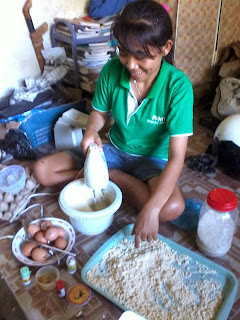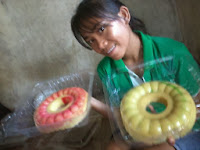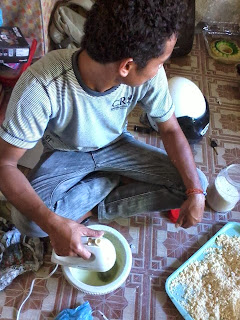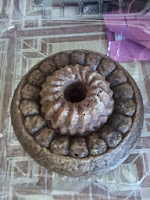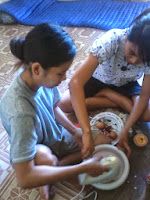As the follow up activity of Multicultural and Inter-Dialogue Training with context of Sumba Culture Nowadays, on Friday – Sunday, September 13 – 15, 2013 in GKS Okanggapi, Londalima, East Sumba, Stube-HEMAT Sumba held a further discussion with Marius Mura Woki, S. Sos., a former chairman of Haharu district, as the guest speaker. Yulius Anawaru, S.Pt., a member of Stube-HEMAT Sumba team managed the discussion as the moderator. The discussion in the Hall of GKS Synod in Waingapu was attended by 24 participants, including Trustha Rembaka, coordinator of Stube-HEMAT Yogyakarta.
Marius Mura Woki is so much encouraged to enlight young Sumbanese about Sumba customs. This cultural enlightment movement is done through Forum Peduli Adat (Customs Care Forum). Marius said that culture is a way of life that’s developed and owned by a group of people and it has been passed down from generation to generation. The culture is made up of various elements and even complicated ones.
Most of Sumbanese are still in the shackle of poverty. They need to be aware and be reconstructed so they may have a better living standard, covering basic needs, appropriate jobs, well educated kids, and health insuranced. However, the fact is on the contrary, family finance that’s actually for their children education or family health often goes to custom practices and demands.
Custom is the product of culture, created by people in the past being passed on from generations, and being expected to bring people into prosperity. Ironically, certain cultural rituals actually imprison even impoverish, and no longer relevant to the present situation. Some Sumba cultures still existing up to now are traditional clothing, traditional house, betel nut (sirih pinang), traditional dances, traditional funeral ceremony and marriage customs.
Marius gave examples that traditional funeral ceremony is so costly that needs many custom animals, such as pigs, buffaloes, horses, and traditional fabric. He emphasized that he did not intend to eliminate the customs, but give a suggestion to simplify them. He started the simplification of traditional funeral ceremony in his family clan in Mangili, East Sumba.
This lively discussion was closed with the statement that culture will evolve continuously and one should not be bridled by culture, however s/he must be able to show their cultural identity owned. (TRU)



